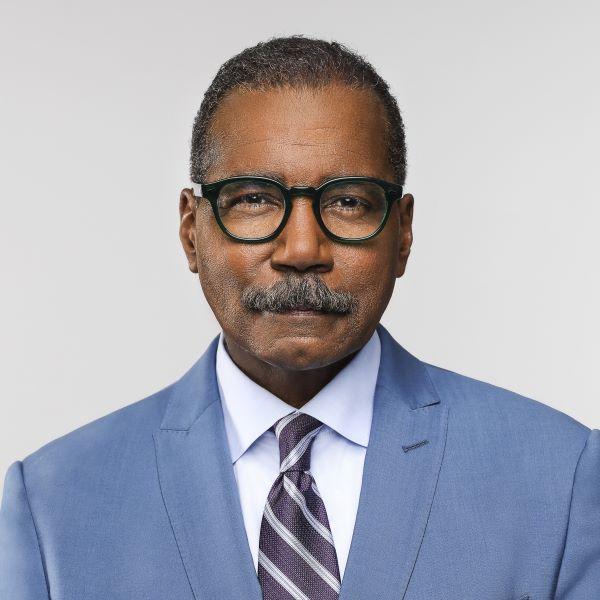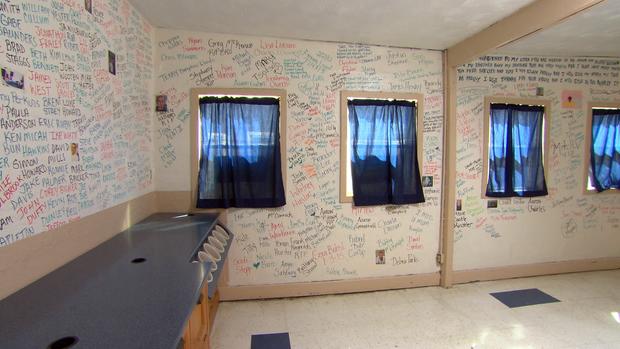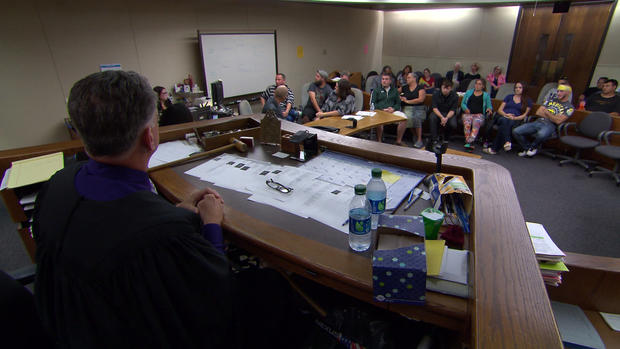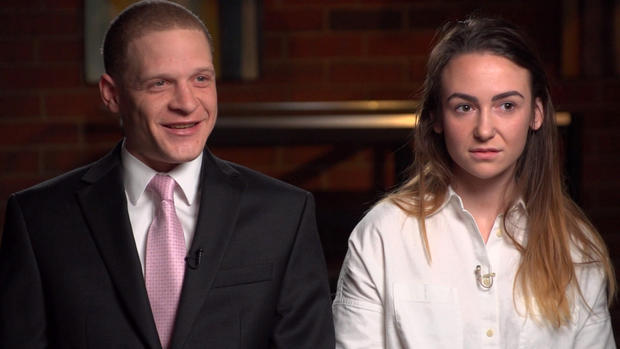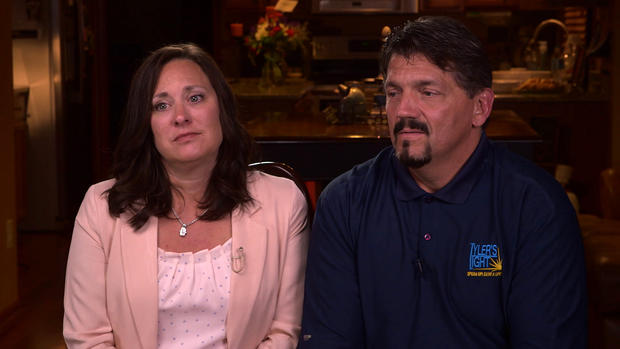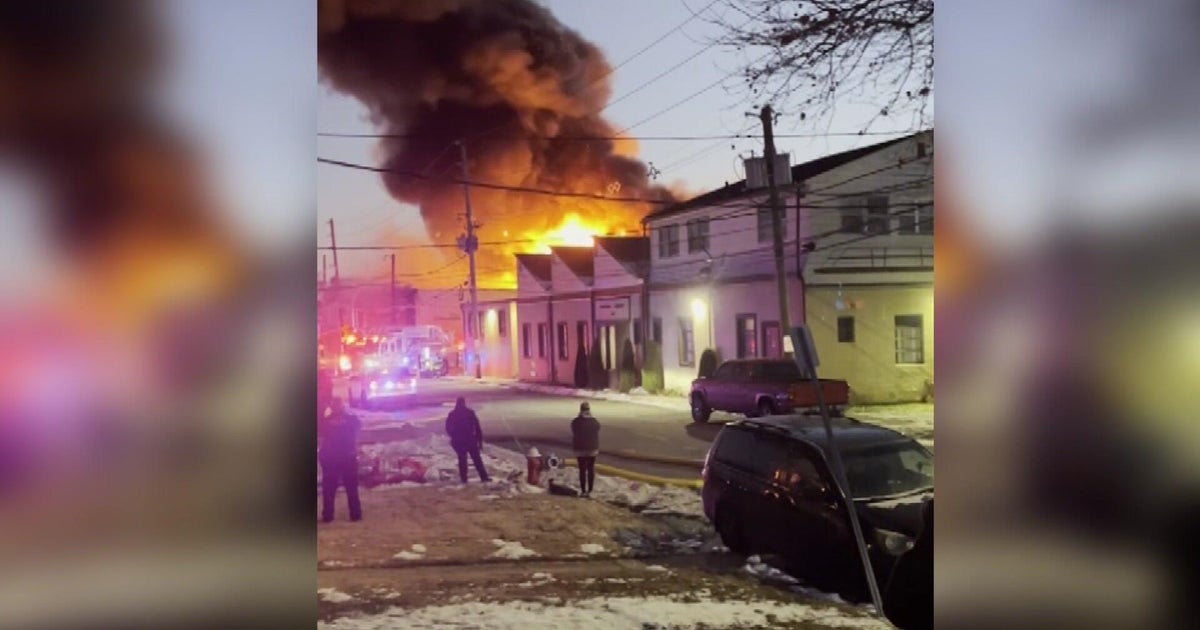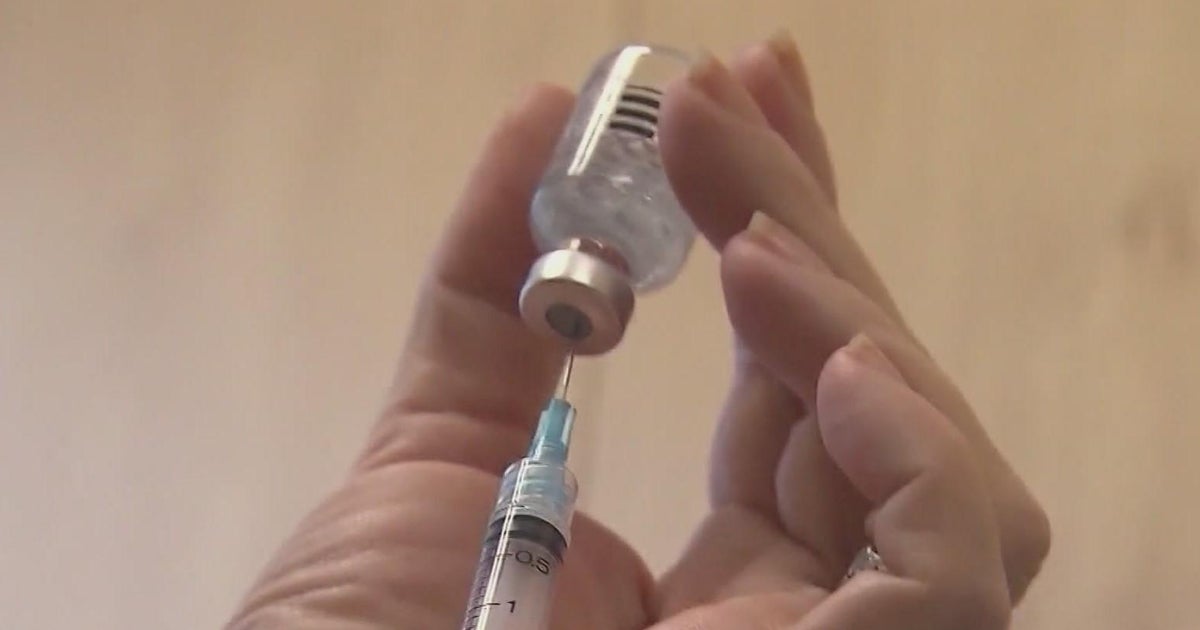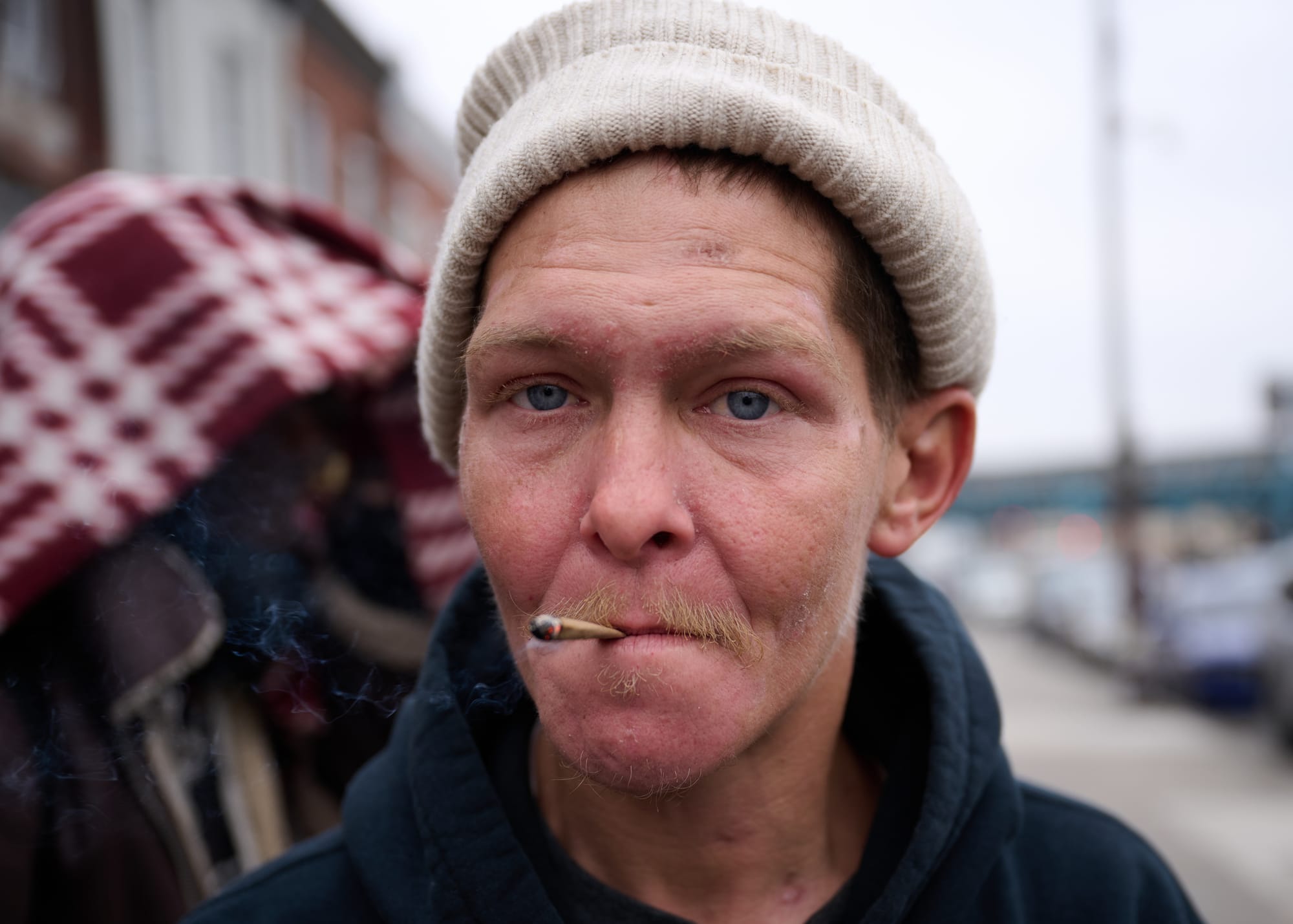Heroin epidemic kills at least 23 Ohioans each week
The following is a script from "The Heroin Epidemic" which aired on April 24, 2016. Bill Whitaker is the correspondent. Tom Anderson, producer.
It's one of the biggest problems in America today: the out-of-control heroin epidemic. It's happening all over the country and forcing authorities to decide whether heroin should be treated as a medical or a legal problem.
Last year, we reported that heroin is spreading through the Columbus, Ohio, suburbs.
Ohio has been hard hit by heroin and we selected Columbus because the area is Middle America personified -- where companies have gone for years to test and market new products.
Now it's where drug dealers, many of them from Mexico, are marketing their cheap and increasingly powerful heroin.
We decided to go back to Ohio this year to see what is being done or could be done to solve a problem that is killing at least 23 people in Ohio every week.
Bill Whitaker: Angie, what is this with all these names on the wall here?
Angie Pelfrey: We call this the "death wall."
Bill Whitaker: The death wall?
Angie Pelfrey: Yes.
Bill Whitaker: Why is that?
Angie Pelfrey: Majority of the people on this wall have died of drug overdose due to heroin.
Angie Pelfrey, a former nurse and recovering opioids addict, runs the New Beginnings rehab facility in rural Piketon, Ohio.
Angie Pelfrey: By 2010, we had about 50 names, total. But now, 2016, we're over 3,000.
Bill Whitaker: That's incredible.
Angie Pelfrey: It is incredible.
Many of the names are mothers, brothers, even grandmothers -- relatives or friends of Angie's residents. They come from all over the state, and nearly everyone knew people on the wall.
Bill Whitaker: That's almost everybody.
Man: There's 23 people in there on the wall from my hometown.
Bill Whitaker: Is it a small town?
Man: Yeah.
A new University of Cincinnati study says one in five Ohio residents knows someone who is struggling with heroin. One sheriff told us that up to 80 percent of the prisoners in his county jail have drugs in their system, largely heroin.
Bill Whitaker: What can law enforcement do?
Mike DeWine: The attorney general's not going solve the problem-- your local sheriff, your local prosecutor is not going to.
Ohio Attorney General Mike DeWine is also a former senator and congressman.
Bill Whitaker: We've been fighting a war on drugs now for decades. If this is the biggest epidemic that you have seen, this heroin epidemic, it sounds like we're not winning that war.
Mike DeWine: You know, I've been involved in law enforcement for four decades. And I've learned over those years that we're not gonna arrest our way out of this problem.
That's why Mike DeWine says he's encouraged by a different kind of court in Ohio.
They're drug courts and deal only with drug cases. There are 91 in Ohio. We went to one in Columbus that was being run at the time by Judge Scott VanDerKarr. He was handling only heroin cases four times a week. The judge believes heroin addiction is an illness and in his court, heroin addicts are treated more like patients than criminals.
Judge Scott VanDerKarr and how long have you been clean?
Addict: I have been clean for 84 days.
There are students in the courtroom, a teacher, a state employee, the CEO of a tech company. If they come here for up to two years, get drug tested and stay clean, their heroin charges are dismissed.
Bill Whitaker: You sort of use the carrot and the stick.
Judge Scott VanDerKarr: Absolutely.
Bill Whitaker: You stick with the program or I'll put you back in jail.
Judge Scott VanDerKarr: I'll put you back in jail. And you're going to end up with a conviction on your record.
Under Judge VanDerKarr, 250 addicts went through the program - people who might otherwise be in jail or dead.
Bill Whitaker: You get resistance from other judges?
Judge Scott VanDerKarr: Absolutely.
Bill Whitaker: So-- what's-- what's their criticism? It's too touchy feely?
Judge Scott VanDerKarr: Yes. It's too social work. That's not my job. My job's to be a judge.
Mike DeWine: Drug courts work. Ah...some people look at them and say, well, it's-- you know, it's-- the judge becoming a social worker. It's not true at all.
It worked for Caitlyn and Robert -- not their real names. They were both arrested for heroin possession and went to Judge VanDerKarr's court after being addicted to heroin for years.
"I had no relationship with reality at all. My thinking was limited to how I could get high."
Caitlyn: It was this, like, really, like, animal instinct level, like, obsession with-- with getting high.
Bill Whitaker: You had to do it?
Caitlyn: Even when I didn't want to, like, wou-- really using against my will.
Bill Whitaker: Where'd you get the money?
Robert: Stealing, lying, cheating...using other people, ripping other people off.
Caitlyn: I had no relationship with reality at all. My thinking was limited to how I could get high.
In Judge VandDerKarr's court, they both were given a new chance.
Robert: It's a gift.
Bill Whitaker: What's the gift?
Robert: Life, a new way to live, you know, and try to give me a little bit of some education on why I'm acting the way I'm acting, why I can't stop.
Caitlyn: They didn't treat us like criminals, I think that was a big thing.
After they passed random drug tests several times a week, went to therapy and stayed clean for more than a year, their drug-related criminal charges were wiped off the books. Robert started a landscaping business. Caitlyn is in pre-med and wants to be a doctor.
Caitlyn: It's freedom and if I had those charges I wouldn't be able to continue on the path that I'm on now.
Bill Whitaker: There are a lot of law enforcement folks who do see your behavior as criminal, and who do think you should be in jail for what you were doing.
Caitlyn: We did break the law.
Robert: Yeah.
Caitlyn: But I'm talking about branding someone a criminal for the rest of their lives. It just doesn't work.
But it's been that way for years in many Ohio communities. We went to Hardin County, one hour outside of Columbus.
Jenna Morrison: I have eight felonies on my record that I will never be able to get rid of.
Hardin County is now experimenting with a drug court, but it didn't exist when Jenna Morrison first started using heroin seven years ago. She's been arrested at least six times.
[Bradford Bailey: Looked at this case - the old case.]
The prosecutor in Hardin County, Bradford Bailey, says he's overwhelmed by drug cases. He takes a harder line than Judge VanDerKarr.
Bradford Bailey: We're gonna get 'em, 'cause they don't have the ability to say no. They don't have the ability to stop using, some of 'em. They don't.
In 2011, Jenna Morrison overdosed and almost died. Prosecutor Bailey charged her with felony heroin possession -- internal possession.
Jenna Morrison: I got charged with possession of heroin, because I had it in my system.
Bill Whitaker: She was charged with a felony for that.
Bradford Bailey: That's what it is. It's a Schedule 1 drug. No one can have it in their possession under any circums-- not even medicinal.
Bill Whitaker: Isn't that a bit extreme?
Bradford Bailey: No. That's the law of Ohio. And it's the law of the United States of America.
Jenna Morrison is no poster child for sobriety. But Judge VanDerKarr told us prosecutors have discretion, and it's unusual to charge addicts, who've overdosed, with possession because a drug is in their system as Prosecutor Bailey did. Jenna sold a police informant small numbers of pain pills and a drug that helps wean addicts from heroin, Bailey came down hard with nine counts of felony trafficking. When Jenna and her sister stole cash and credit cards from their mother to support their heroin habits, Bailey charged them with felony theft.
Tracy Morrison: I couldn't stop them. I filed charges on my own daughters
At her wit's end, it was Tracy Morrison who called the police.
Tracy Morrison: It resulted in five felony charges for one, three for the other.
Bill Whitaker: Felony charges?
Tracy Morrison: Felony charges. See I was thinking, 'cause I'm naive, that 100 bucks is petty theft. Well, no. They got 'em for forgery and all-- all these felonies. And then they were trying to send them to prison, and I thought, this-- I just didn't even expect that to happen.
Since she first used heroin seven years ago, Jenna Morrison has been charged with 23 felonies. Todd Anderson is her lawyer.
Todd Anderson: So they're taking these low-level users and addicts, charging all these felonies, and then the problem is, is that they stack the sentences on 'em. And then when they violate their probations, then they're getting lengthy prison sentence for really, being an addict.
Bill Whitaker: The county prosecutor would say, "There's just no denying she broke the law."
Todd Anderson: I agree with that. But the issue's what we do with them, and what's the sentence. The sentence's gotta be fair.
When we first met Jenna last year, she had kicked her heroin habit with the help of a new drug called Vivitrol, which blocks the effects of opioids in the brain. She went back to school and was managing to take care of her children. But she was still posted on Prosecutor Bailey's website as a drug trafficker and she couldn't find a job. Her mother says she got depressed and started using cocaine. She recently was locked up again and the prosecutor charged her with five more felonies, making a total of 28. Eighteen have been dismissed; 10 remain on her record.
Bill Whitaker: You think she's been treated fairly?
Bradford Bailey: Where has she been un-treated unfairly? Everything she's done she's chose to do. We didn't tell her to do these things. She chose to do felony crimes, not the state. We're not giving her a free pass. We don't give anybody a free pass.
Bill Whitaker: But you also know that she's addicted to heroin.
Bradford Bailey: I have a lot of people who are addicted to heroin. Most of the people that are in our drug business, the illegal drug business, are addicted.
Prosecutor Bailey says the voters have told him they want drug addicts off the street, but Scott VanDerKarr says law enforcement needs to recognize the old, tough-on-drugs approach isn't working -- that addicts like Jenna need help, not punishment. He recently resigned his judgeship to help other communities in Ohio set up their own drug courts. He meets with judges and elected officials like Greg Peterson, the mayor of Dublin, Ohio.
Greg Peterson: I don't want anybody in Dublin to have a problem and ever think, "I don't know where to turn."
But many parents in the Columbus suburbs told us they don't know where to turn, even if they can afford private health insurance to pay for rehab and detox programs. Christy and Wayne Campbell's son Tyler was a star high school and college football player -- and a heroin addict. He was in and out of rehab three times -- short rehabs because most insurance companies limit the length of in-patient treatment.
Christy Campbell: The last one that he was in -- was in there two weeks. And the insurance company wanted to release him.
Christy convinced the insurance company to give Tyler two more weeks.
Wayne Campbell: When he came home, there was-- there was something obviously different. I mean, he, like, he got it.
Bill Whitaker: He was talking about the future--
Wayne Campbell: Yes, this--
Christy Campbell: Talking about the future--
Wayne Campbell: This is midnight. So we go to bed with the biggest sigh of relief that you could ever have. It's over. "Tomorrow's gonna be a great day."
But tomorrow never came. Tyler went up to his bedroom, shot up and overdosed.
At the New Beginnings rehab facility, Angie Pelfrey told us what happened to Tyler is not unusual.
Angie Pelfrey: They get to a point to where they're not using. They go out and want to use maybe one more time-- just one more hoorah. And it takes their life because they s-- they go back to using the same amount that they did when they were ending the addiction.
Bill Whitaker: Their tolerance goes down after two weeks of rehab--
Angie Pelphrey: Right. Right.
Bill Whitaker: They go home, shoot up the same amount they were using before--
Angie Pelphrey: Of her-- yes. And it's taken their lives--
Bill Whitaker: And it's now an overdose.
Angie Pelphrey: Right.
Angie Pelfrey's facility is a faith-based program, supported by a church and the local community. Addicts can stay without paying for up to a year. But Angie has to turn away up to 20 people every day. There just aren't enough beds.
Recorded Message: This is in regards to my son, he's a heroin addict, and he's asking for help. He needs help, or he's gonna die. You can call me anytime. Thank you so much.
Angie Pelphrey: It's horrible to know that you have to tell a mother that you're sorry that you can't take 'em-- knowing that there is a good chance they may not live 'till the next day.
It's a day-to-day struggle. Angie says the odds of staying clean after a year at New Beginnings are only 50-50.
Bill Whitaker: What do you think about what you're seeing and experiencing?
Angie Pelphrey: My fear is that it's never ending. That's my fear.
Bill Whitaker: Never ending.
Angie Pelphrey: Never ending. I'm not seeing an end to it anywhere.
